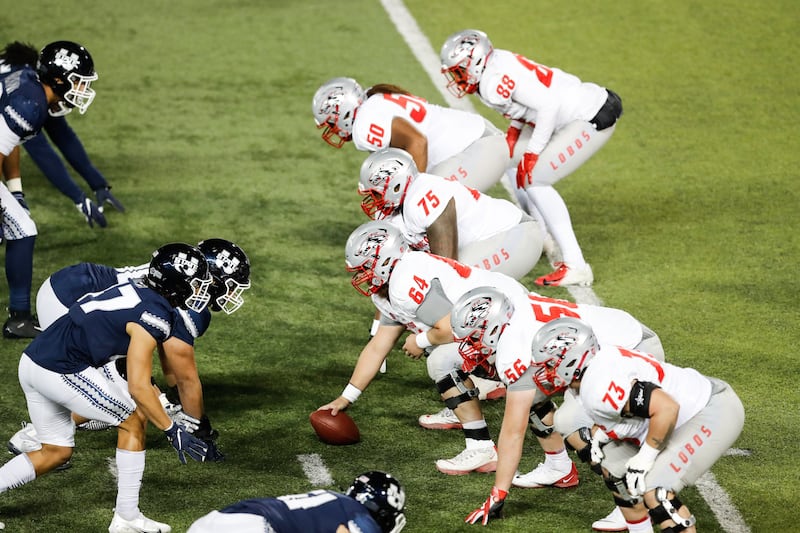On second thought, before the Utah State football controversy disappears completely into back-room negotiations, let’s applaud the thoughtful, measured way that the Utah State football players handled a difficult situation.
In case you’ve forgotten, they elected not to play their final game of the season, Dec. 12 against Colorado State. They chose to boycott the game because of comments that were made during a Zoom call with the school’s president Noelle Cockett and athletic director John Hartwell, a call they had arranged to lobby for the hiring of assistant coach Frank Maile as the new head coach.
Cockett is alleged to have said — there were more than 60 football players listening and watching — that a chief concern was Maile’s religious and cultural background. Maile is a member of The Church of Jesus Christ of Latter-day Saints and is a Polynesian. One player also noted that Cockett said the last time the school hired a Mormon from Utah “it didn’t work out too well.”
The response of the players was not rash, nor particularly emotional. They thought about it for a couple of days and then met after practice Thursday — two days before the game — to discuss how or if they should respond — specifically, if they should boycott the game. They felt that Maile had been wronged, that he had been the victim of bias and racism. Cockett’s comments didn’t sit well with them. Weren’t we past this sort of thinking — especially in this era?
“It was a hard decision,” one player said. “We wanted to play the game. But we had to make a statement.”
Of course they wanted to play the game. The games are the payoff. They are the reason they practice and train year-round, often getting up in the dark each morning before class to lift weights; games are fun; games are the stage on which they can play in front of students, family and friends. It’s a big sacrifice to skip a game, especially this year.
Because of the pandemic, they had been given a truncated eight-game schedule, four games (or one month) short of a normal season. As things turned out, they didn’t even play eight. One game was canceled by a COVID-19 outbreak. They lost five of the six games they did play. They couldn’t have been eager to see another game lost to cancellation, even by their own choosing. But it was put-up-or-shut-up time. Not everyone has the stomach or commitment for such things.
Pac-12 players delivered a manifesto early this year vowing they would not play games this season unless a long list of grievances was addressed. But months later, when the Pac-12 decided to play ball this season, the players forgot their demands and played. Some Pac-12 players were bailing out of their threatened boycott even before the conference decided to play this season.
Hours after the post-practice meeting on Thursday, Dec. 10, members of the team’s leadership committee — composed of players chosen by each position group — had the presence of mind and the forethought to conduct a blind survey of their fellow players to gather feedback about the Zoom call. Of the 81 who responded, 62 said they participated in the Zoom call and 69 said they were concerned about things that were said during the call.
The results of the poll were assessed by leadership — complete with colored pie charts — and the team met again Friday morning, the day they were supposed to fly to Fort Collins. According to a KUTV report, 52 players supported a boycott of the game before the meeting, but by the time they were finished discussing it further that morning, all players supported it.
The players decided to take a stand, even if it meant sacrificing a game. They believed that was the best way to make a statement. It certainly got the attention of fans, national media, the university and the network affiliate that had planned to televise the game.
If nothing else, you have to admire the mature way in which the players handled the occasion. It might have been their best performance of the season.



